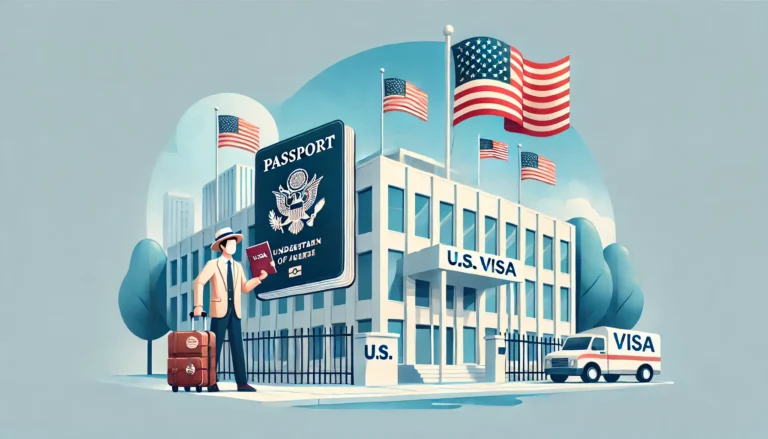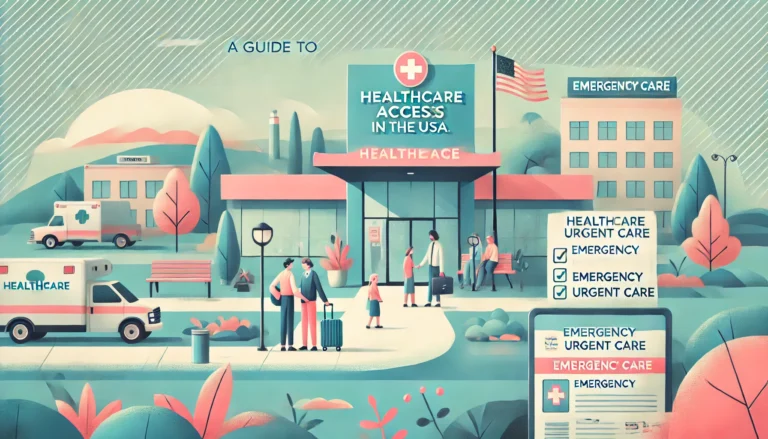How to Handle Emergencies While Traveling in the USA
Introduction
Traveling can be an exhilarating experience, but emergencies can occur unexpectedly. Knowing how to handle various emergencies while traveling in the USA is crucial for ensuring your safety and well-being. This guide outlines essential steps and resources to help you effectively manage emergencies during your trip.
How to Handle Emergencies While Traveling in the USA
1. Preparation Before You Travel
Research Your Destination
- Local Emergency Numbers: Familiarize yourself with emergency contact numbers in the area, such as police, fire department, and medical services.
- Healthcare Facilities: Identify nearby hospitals and urgent care clinics. Keep their addresses and contact numbers handy.
Travel Insurance
- Consider Purchasing Travel Insurance: Travel insurance can provide coverage for medical emergencies, trip cancellations, lost luggage, and other unexpected events.
Emergency Contacts
- Compile a List: Create a list of important contacts, including family members, your country’s embassy or consulate, and your hotel’s front desk.
2. What to Do in a Medical Emergency
Assess the Situation
- Determine Severity: Evaluate whether the situation is life-threatening or requires immediate medical attention.
Call for Help
- Dial 911: In case of a severe medical emergency, call 911 for assistance. Provide clear information about your location and the nature of the emergency.
Seek Medical Attention
- Visit Local Healthcare Facilities: If you need non-emergency medical care, locate the nearest hospital or urgent care center.
Follow Up
- Keep Records: Retain any medical reports or receipts for insurance purposes.
3. Handling Accidents or Injuries
Stay Calm and Assess
- Remain Calm: Take a deep breath and assess the situation. Check for injuries to yourself and others.
Call for Assistance
- Emergency Services: If the accident is serious, call 911 to report it.
Document the Scene
- Take Notes and Photos: If safe to do so, document the scene, including vehicle positions, damages, and contact information for witnesses.
Exchange Information
- Collect Information: If involved in a vehicle accident, exchange insurance and contact details with the other party involved.
4. Dealing with Natural Disasters
Stay Informed
- Monitor Local Alerts: Keep an eye on weather updates and emergency alerts via local news stations, mobile apps, or NOAA Weather Radio.
Know Your Safety Plan
- Emergency Procedures: Familiarize yourself with the emergency procedures for your location, such as evacuation routes and shelters.
Follow Authorities’ Instructions
- Evacuate if Necessary: If authorities issue evacuation orders, follow them promptly and safely.
5. Handling Lost or Stolen Items
Report to Authorities
- File a Police Report: If your wallet, passport, or other valuables are lost or stolen, report it to the local police. Obtain a copy of the report for insurance claims.
Contact Your Bank and Credit Card Companies
- Cancel Cards: Immediately contact your bank and credit card companies to report stolen cards and prevent fraudulent transactions.
Replace Important Documents
- Embassy or Consulate: If your passport is lost or stolen, visit your country’s embassy or consulate to apply for a replacement.
6. Coping with Travel Disruptions
Flight Delays or Cancellations
- Contact Your Airline: If your flight is delayed or canceled, reach out to your airline for rebooking options and compensation details.
Transportation Issues
- Alternative Arrangements: If your transportation is disrupted, consider alternative travel options like buses, trains, or rental cars.
Stay Connected
- Use Mobile Apps: Utilize travel apps to monitor flight statuses and make quick adjustments to your itinerary.
7. Mental Health Emergencies
Recognize Signs of Distress
- Stay Aware: Be aware of your mental health and that of those traveling with you. Travel can be stressful, and anxiety can arise.
Seek Support
- Talk to Someone: If feeling overwhelmed, talk to a trusted friend or family member. Many cities also have mental health resources available.
Crisis Hotlines
- Crisis Support: For immediate support, call the National Suicide Prevention Lifeline at 1-800-273-TALK (1-800-273-8255) or text “HELLO” to 741741 for the Crisis Text Line.
Conclusion
Handling emergencies while traveling in the USA requires preparation, awareness, and swift action. By familiarizing yourself with local resources, knowing what to do in various situations, and staying calm, you can effectively manage emergencies and ensure your safety during your travels. Being proactive can turn potential crises into manageable situations, allowing you to continue enjoying your trip with peace of mind.




